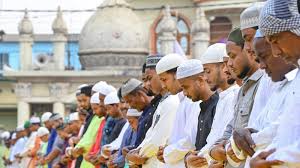Chhattisgarh High Court refuses to quash FIR against professors who ‘asked students to offer namaz’

The Chhattisgarh High Court recently refused to quash a First Information Report (FIR) against several professors from Guru Ghasidas Central University in Bilaspur. The FIR accuses the faculty of forcing students to offer Namaz, an Islamic prayer, during a National Service Scheme (NSS) camp in March 2025. This decision highlights the court’s cautious approach toward interfering in ongoing investigations. It also raises important questions about religious freedom and student rights in educational institutions.
Background of the Incident
The controversy began at an NSS camp held in Shivtarai village in March 2025. Professors allegedly asked 159 students, including 155 non-Muslims, to participate in Namaz. Only four students identified as Muslim.
Following this, students and several right-wing groups protested. They claimed the professors forced Hindu students to join a religious practice against their will. The students filed complaints, and the police registered an FIR on April 26, 2025. The FIR names seven faculty members and a student leader.
Legal Challenge and High Court’s Decision
The accused professors challenged the FIR in the High Court. They claimed the prayer was voluntary and did not violate any law. They also said the allegations lacked evidence.
However, the court rejected their plea. Chief Justice Ramesh Sinha and Justice Rakesh Mohan Pandey stated that it was too early to stop the investigation. They said the court should not quash an FIR unless the allegations clearly show no crime.
The judges referred to Supreme Court guidelines, which advise courts to let investigations run their course before intervening. They emphasized that stopping investigations at the early stage harms justice. The court left the matter to the police and prosecution to examine the facts.
Religious Freedom and Student Rights
This case has sparked debates about religious freedom in schools and colleges. India’s Constitution guarantees freedom of religion. It protects individuals from being forced to follow any faith.
If students were indeed forced to join Namaz, it violates their religious rights. Forcing students to take part in religious acts can harm the inclusive spirit of educational spaces. Such acts can create discomfort and division among students.
On the other hand, the professors argued that they aimed to promote communal harmony. They said the prayer was part of cultural exposure during the camp. This raises a key question: Where does cultural exposure end and religious imposition begin?
Role of Educational Institutions
The case highlights the responsibility of educational institutions to remain neutral on religion. Schools and universities should respect all faiths and not compel students to participate in religious activities.
The NSS program aims to promote social service and personality development, not religious practice. Any forced religious activity during such programs undermines their purpose.
Experts suggest that religious or cultural activities in schools should always be voluntary. They believe respect for different faiths grows through education, not compulsion.
Political and Social Reactions
This incident attracted political attention from different groups. Right-wing organizations saw it as an example of religious imposition on Hindu students.
Some voices warned against using the issue for political gain. They cautioned that politicizing such matters could deepen communal tensions. They urged calm, dialogue, and evidence-based investigation.
What Happens Next?
The FIR remains active, and the police continue their probe. The accused professors received bail. The investigation will determine whether coercion occurred.
The university faces pressure to clarify rules on religious activities during official events. This case might lead to stronger policies to protect religious neutrality and student rights.
Conclusion
The Chhattisgarh High Court’s refusal to quash the FIR reflects judicial caution in sensitive cases. It allows a fair investigation into serious allegations of religious coercion.
The case raises important issues about religious freedom and respect in education. It reminds institutions to protect individual rights and maintain secular values.
The final verdict will influence how India’s educational spaces handle religious diversity going forward.






